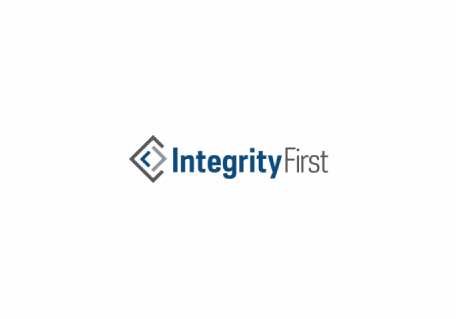Have you ever hired someone who looked perfect on paper, only to discover later they didn’t share your organization’s values?
You’re not alone. Integrity—more than just another buzzword—is critical in building a reliable, successful team. Yet, spotting who’s trustworthy can be tricky, especially when everyone’s trying to put their “best foot forward.”
In this blog, we’ll dive into practical ways to test integrity during interviews. By the end, you’ll have a clear strategy to pinpoint candidates who will align with your company values and help you avoid costly hiring mistakes.
And if you want to combine interview insights with a formal assessment, consider the integrity assessment tests from integrityfirst tests—a proven solution used by top businesses worldwide.
Why Integrity Matters in Hiring
Integrity is the foundation that holds teams together. An employee lacking integrity might engage in behavior that damages morale, from bending rules to outright dishonesty or theft. These lapses hurt not just the bottom line but also team culture and customer trust.
On the flip side, high-integrity employees—those who act ethically even when no one’s watching—can elevate your organization’s reputation and drive long-term success.
When you’re face-to-face in an interview, you have a chance to gauge whether a candidate’s values match what your organization stands for.
But remember, many people are coached to shine in interviews, so it’s essential to peel back the layers and see who they truly are.
Preparing to Assess Integrity During Interviews
Before you dive into questions, set the stage for a meaningful integrity assessment:
- Understand the Role’s Ethical Demands
- Does this position handle cash? Sensitive data? Confidential information?
- Identify the areas most vulnerable to integrity breaches.
- Does this position handle cash? Sensitive data? Confidential information?
- Define “Integrity” for Your Organization
- Is it accountability? Ethical conduct with clients? Team transparency?
- Clarify the behaviors that matter so you can tailor questions accordingly.
- Is it accountability? Ethical conduct with clients? Team transparency?
- Review the Candidate’s Background
- Keep an eye out for any hints of inconsistency between their résumé, references, or online profiles.
- Keep an eye out for any hints of inconsistency between their résumé, references, or online profiles.
- Use Standardized Questions
- Keep some questions consistent across interviews to compare how different candidates handle ethical dilemmas.
- Keep some questions consistent across interviews to compare how different candidates handle ethical dilemmas.
Key Approaches to Testing Integrity
1. Behavioral Interview Questions
Behavioral questions are based on the principle that past behavior can predict future actions.
By asking about real-life experiences, you get a window into how someone has handled ethical issues in the past.
2. Situational or Hypothetical Questions
Situational questions present hypothetical dilemmas. While they may not reflect real past behavior, they can reveal a candidate’s decision-making style and ethical standpoint.
It’s valuable for gauging how they might handle similar challenges in your workplace.
3. Asking About Past Mistakes
People often try to gloss over or minimize past failures. But being open and honest about mistakes can signal authenticity.
Asking directly about professional errors or ethical slip-ups helps you see if the candidate can take responsibility.
4. Using Credibility & Consistency Checks
Smart interviewers look out for inconsistent statements. If a candidate’s story changes when repeated or conflicts with their résumé, it’s a red flag.
Using the same question or verifying small details at different points in the interview can test a candidate’s credibility and consistency.
Effective Question Examples
Below is a simple table offering question ideas, along with what the answers might reveal:
| Question | What You’re Looking For |
| “Tell me about a time you faced an ethical dilemma at work.” | Openness, problem-solving skills, willingness to do what’s right, even under stress. |
| “What would you do if you discovered a coworker stealing supplies?” | If they’d ignore it, report it, or confront the situation. Consistency with your policies. |
| “Describe a time you took responsibility for a mistake.” | Ownership and accountability for errors, rather than shifting blame. |
| “If a client pushes you to bend the rules, how would you respond?” | Practical judgment and loyalty to company values. |
| “Have you ever felt pressured to compromise your principles at work?” | Demonstrates personal ethics and how they handle conflicting demands. |
Tip: Notice the words “tell me about a time…” or “describe a situation…” These are hallmarks of behavioral questions that invite a real-life story.
Structuring Your Interview Assessment
Below is a step-by-step structure you might follow in your interview to thoroughly test for integrity:
- Warm-Up (5–10 mins)
- Make the candidate comfortable. Introduce the company’s culture and ethics emphasis.
- Make the candidate comfortable. Introduce the company’s culture and ethics emphasis.
- Behavioral Focus (10–15 mins)
- Ask about past experiences: “Tell me about a time…”
- Listen carefully for honesty, accountability, and clarity.
- Ask about past experiences: “Tell me about a time…”
- Situational Scenarios (5–10 mins)
- Offer hypothetical dilemmas: “What if…?”
- Gauge their immediate reaction and decision-making process.
- Offer hypothetical dilemmas: “What if…?”
- Follow-Up & Consistency Checks (5–10 mins)
- Revisit key points. If anything seems contradictory, gently ask for clarification.
- Revisit key points. If anything seems contradictory, gently ask for clarification.
- Wrap-Up & Culture Fit (5 mins)
- Discuss your company’s core values. See if they resonate with the candidate’s personal beliefs.
- Discuss your company’s core values. See if they resonate with the candidate’s personal beliefs.
Boosting Your Strategy with Integrity Assessments
While interviews are crucial, you can’t rely on them alone. Many organizations now use integrity assessment tests—standardized tools that measure honesty and trustworthiness in quantifiable ways.
This adds an objective layer to your hiring process, minimizing potential biases.
At integrityfirst tests, you’ll find reliable assessment tools built upon research and data. These tests make it easier to spot high-risk candidates—those likely to engage in theft, fraud, or other unethical behaviors—so you can protect your team and preserve your company culture.
Recommended Reading
For more on why people might admit dishonesty and how to structure an integrity assessment questionnaire, check out these insightful blogs:
These articles dive deeper into the science of assessing integrity and offer real-world examples that can sharpen your hiring approach.
Final Thoughts
Interviewing for integrity may feel daunting, but with the right questions and strategies, you’ll spot the red flags (and the green ones!) in no time.
By combining behavioral and situational questions, verifying consistency, and using trusted tools like integrity assessment tests from integrityfirst tests, you’ll be well-equipped to find employees who truly align with your company’s values.
Remember: investing in integrity-based hiring isn’t just about avoiding risks—it’s also about building a resilient, honest, and collaborative workplace that fuels long-term success.





